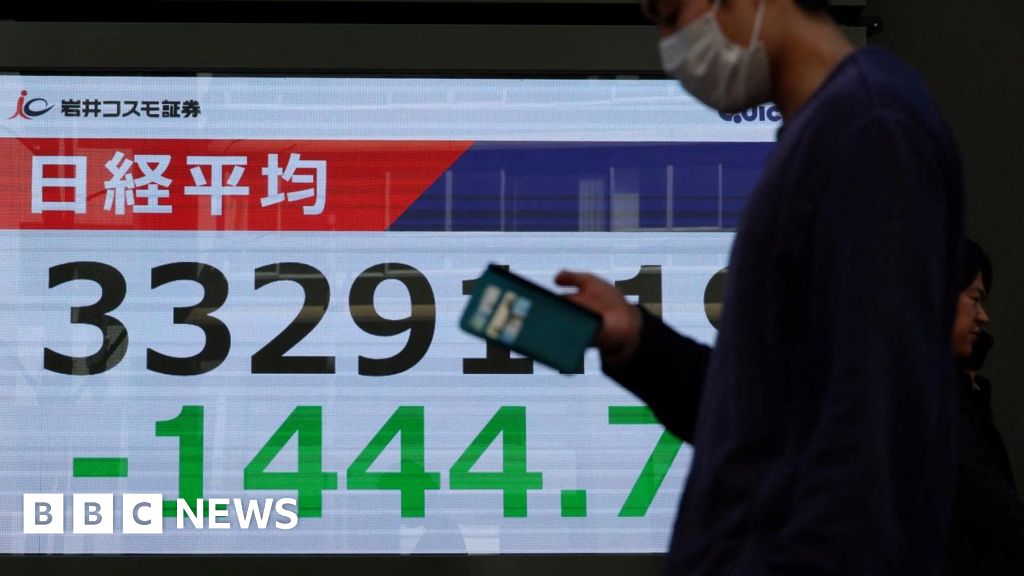ARTICLE AD BOX
 Image source, Getty Images
Image source, Getty Images
Rail services face disruption on Friday, because of ongoing strike action over pay and working conditions.
Train drivers at two companies - LNER and Northern - and London Overground staff are staging walkouts in March.
When are the LNER, Northern and London Overground strikes in March?
Train drivers at LNER and Northern who are members of the Aslef union are on strike for 24 hours from midnight on Friday 1 March.
There will be no Northern services and only a reduced service on most of the LNER route.
Members had already started a ban on working overtime shifts, which began at midnight and will last until Saturday 2 March.
Meanwhile, more than 300 London Overground workers are due to stage a 24-hour walkout from midnight on Monday 4 March.
It will involve security, station, revenue and control staff who are members of the RMT union.
Passengers are advised to check before they travel. For up-to-date information about whether services are running, check the National Rail website.
Can I get my money back for strike days?
Rail passengers with advance tickets can be refunded fee-free if the train they are booked on is cancelled, delayed or rescheduled due to strikes.
If passengers have a return ticket they may also be entitled to a fee-free refund if any part of the journey is cancelled.
Season ticket holders (flexi, monthly or longer) who cannot travel, can claim 100% compensation for strike dates through the Delay Repay scheme.
What are the strikes about?
Aslef is seeking better pay for its members and says drivers are being asked to sacrifice working conditions in exchange for a below-inflation wage increase.
In April 2023, its executive committee rejected 4% pay rises for two years in a row. There have been no formal talks since.
In a separate dispute, the Aslef strikes at LNER and Northern are about a "persistent failure to comply with existing agreements".
The RMT, meanwhile, is seeking an above-inflation pay offer for London Overground workers.
Arriva Rail London, which has the London Overground contract, says it had offered a good pay award.
Train operators say ways of working need to change for wages to rise, because of financial challenges and fairness to taxpayers.
The Department for Transport says the union needs to do the "right thing" and give members a vote.
Are there more strikes planned?
Unions in disputes need to re-ballot members every six months to see if they want to continue with industrial action.
Currently, unions are obliged to give at least 14 days' notice of any strike action.
In November last year, RMT members, including guards and ticket office staff, voted to accept a pay offer. This included a backdated pay rise of 5% for 2022-23 as well as job security guarantees.
Their acceptance means they will no longer be involved in industrial action until at least the spring.
Talks over future pay deals and working practices will continue.
Train drivers at Chiltern, c2c, East Midlands, Northern and TransPennine railways previously voted to continue strike action for six months. They join Aslef members at 11 other rail companies who in December backed a continuation of strikes.
They overwhelmingly voted in favour of further walkouts, though no dates have been confirmed.
What is the minimum service levels law?
Currently, few or no services usually run when train drivers strike.
But the government passed a new law which means train companies can require enough staff to work on strike days to run 40% of services.
The Department for Transport said it expects employers to use minimum service levels "if appropriate to do so, and to deliver the best possible service".
Industry insiders told the BBC the rules were complicated to put in place. One source said it meant co-ordinating a reduced timetable with other operators in a short space of time.
Unions strongly oppose it.
How much are rail workers paid?
The Office for National Statistics (ONS) says median pay for "train and tram drivers" is just under £59,000.
Train companies and the government say the offer rejected by Aslef would take average train driver pay to £65,000.
The average salary of rail workers in 2022 was £45,919, according to the ONS.
If drivers are excluded (because they tend to be members of the Aslef union, not RMT) its estimate is £39,518. However, the RMT union said that figure was too high because it does not include rail cleaning staff.
Will you be affected by the strikes? Get in touch by emailing haveyoursay@bbc.co.uk.
Please include a contact number if you are willing to speak to a BBC journalist. You can also get in touch in the following ways:
If you are reading this page and can't see the form you will need to visit the mobile version of the BBC website to submit your question or comment or you can email us at HaveYourSay@bbc.co.uk. Please include your name, age and location with any submission.

 1 year ago
78
1 year ago
78








 English (US) ·
English (US) ·